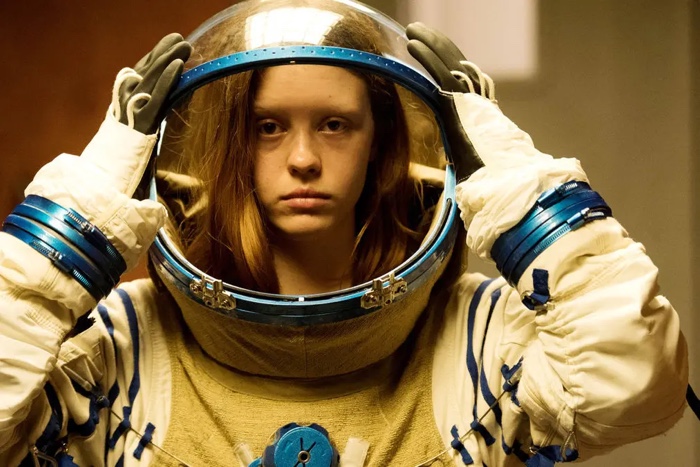Off-Earth. Ethical Questions and Quandaries for Living in Outer Space, by astrophysicist Erika Nesvold. Published by MIT Press.
While books on interplanetary travel typically focus on technology, Off-Earth probes fundamental questions related to politics and ethics, reminding us that space is not a blank slate where we can build utopian societies free from any earthly hassle and constraints.
Even those who don’t realise that terms such as “space colonisation” are problematic will have to admit that the whole context is going to be infinitely more challenging than the ones encountered by European settlers in the past. The space is infinite, the resources are not. As Erika Nesvold writes, the “key survival mechanism used by colonists in the past—learning from, trading with, or stealing from the Indigenous people—will not be available to space settlers. By embracing a colonialist vision of space and romanticizing the pluck and ingenuity of historical colonists while neglecting their dependence on Indigenous knowledge, we are ignoring the incredibly harsh and dangerous lives that space settlers will experience.”
High Life (film still), directed by Claire Denis, 2018
Demonstrators stage a protest at Cape Kennedy, Florida, on 15 July 1969, on the eve of the Apollo 11 moon mission. Photograph: AP, via The Guardian
The author is no less enthusiastic about space research than Bezos and Musk. She does, however, look beyond the Star Trek rhetoric.
Throughout the pages, Nesvold asks uncomfortable questions, scrutinises socio-ethical challenges and suggests possible solutions. She draws on conversations with experts whose voices you would expect to hear in this context: philosophers, sociologists, space lawyers, astronomers, ethicists, astrobiologists, economists, space archaeologists and a space debris expert. But Nesvold also talked with a disabled rights activist, a criminologist, a prison abolition advocate, oceanographers, property lawyers, an environmental lawyer, etc. Together with the experts she interviewed, the author looks at past mistakes and, perhaps more interestingly, she draws parallels with current experiences that could inspire our future community-building, drawing lessons from indigenous societies living in an isolated and deadly environment, station managers in Antarctica, migrant workers in Thailand trapped on boats at sea, etc.
While the chapters about extraterrestrial economy and space extractivism are interesting, the ones that I found most gripping are the ones that interrogate how we can build a resilient and egalitarian society in space.
Émile-Antoine Bayard, Illustration of Jules Verne’s Around the Moon, 1870
Jan Prengel, Plants From Space 8, 2020
Astronaut Joseph Kerwin examines Charles Conrad during the first manned mission to Skylab, 1973
One of the first questions the author asks is: Who gets to go? Should we insist that every demographic on Earth is proportionally represented in space settlements? If we pursue this reasoning, out of 100 space settlers, 18 should be from China, as many from India, 4 from the United States, etc. But what about tiny or even small nations? Should we follow a utilitarianist logic instead? We would then need a good balance of people with certain skills and education: doctors, engineers, farmers, and so on. Who would then be considered “useless”? People with disabilities? Not when you consider that accidents will happen in space and it might be crucial to design right from the start assistive technologies that will accommodate everyone, whether they have disabilities or not.
One quality settlers will need is “reproductive fitness”. The minimum viable human population is estimated to be around 10,000—smaller populations risk inbreeding due to the lack of genetic diversity. The number can be decreased by travelling with a supply of extra genetic material like frozen embryos or sperm samples. Will natural reproduction in space even be possible for us? From copulation to conception, foetal development to birth, all the stages of pregnancy are vulnerable to disruption by radiation, microgravity and other adverse environmental conditions. And how can parents resist the pressure to abort foetuses carrying a potential disability as they will be regarded by some as a drain on the resources of the space colony?
How do you protest (and breathe) in space settlements if, say, the organisations that control the supply of oxygen implement measures that you find exploitative? How do you enforce labour protection laws on another planet? What happens when a worker finds themselves suddenly unemployed with no funds in a place where homelessness means being exposed to deadly radiation and not even having access to breathable air?
What will law enforcement look like in space? A prisoner in space not only siphons resources but might also have expertise crucial for the settlement’s survival. So how do you deal with residents who break the rules?
What will religions and their rituals look like in space?
And if the first space settlers cultivate ties to their home planet, how about future generations? Will they want to get financial, political or even cultural independence from Earth? Could this lead to military conflict between space colonies and populations who remained on Earth?
Every single issue raised by Nesvold is stimulating and intriguing. They appear to us as both incredibly distant and disturbingly close to our terrestrial preoccupations. Off Earth reminds us that it would be foolish to ignore what is happening on our own planet before we spread human society all over the cosmos. Whether we plan to exploit celestial bodies for their mineral resources or terraform planets to host us, how can we protect the space environment when we seem unwilling to protect marine habitats and the species that inhabit them? Or when countries that signed the Paris Climate Accords don’t even respect the basic commitments they made?
In her book, Nesvold establishes that space exploration is as much about ethics as it is about technology. It should reflect our values. Or at least the values we manage to agree on.
Related stories: Supre:organism. Alternative perspectives on space exploration, MAAN/MOON: The only exhibition that sparked my enthusiasm about space exploration, An artificial planet made entirely of human bodies, The epic task of breeding fruit flies for life on Titan, etc.





